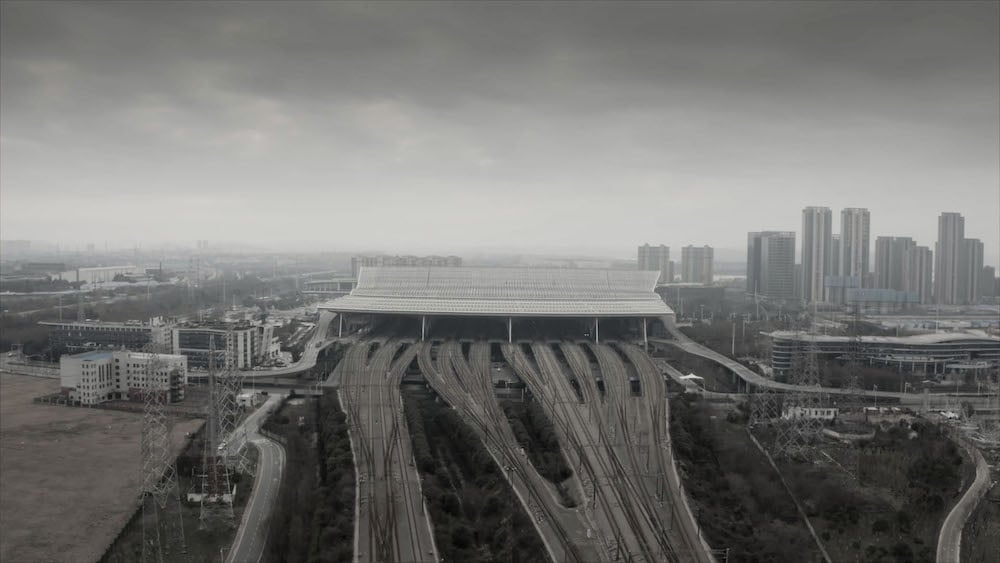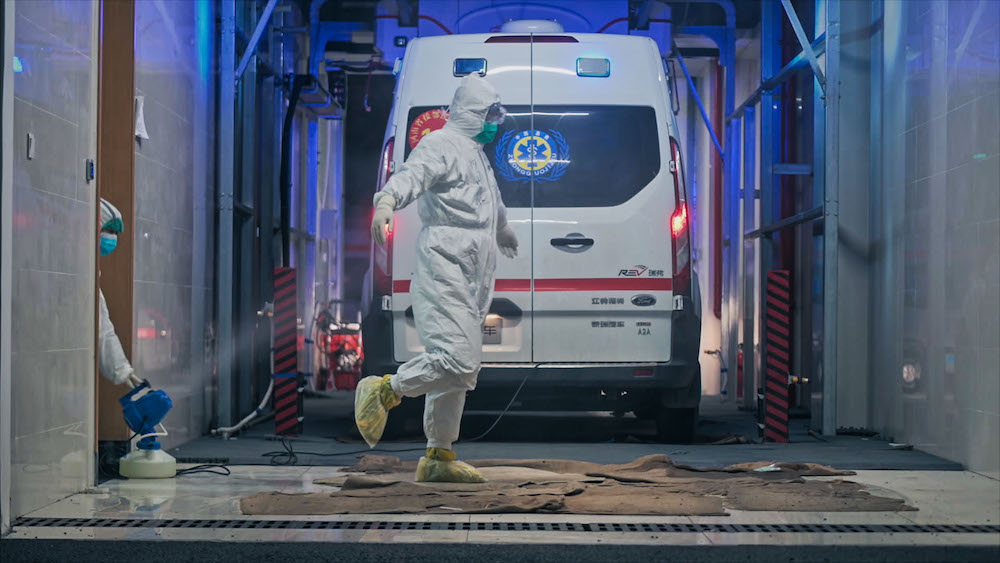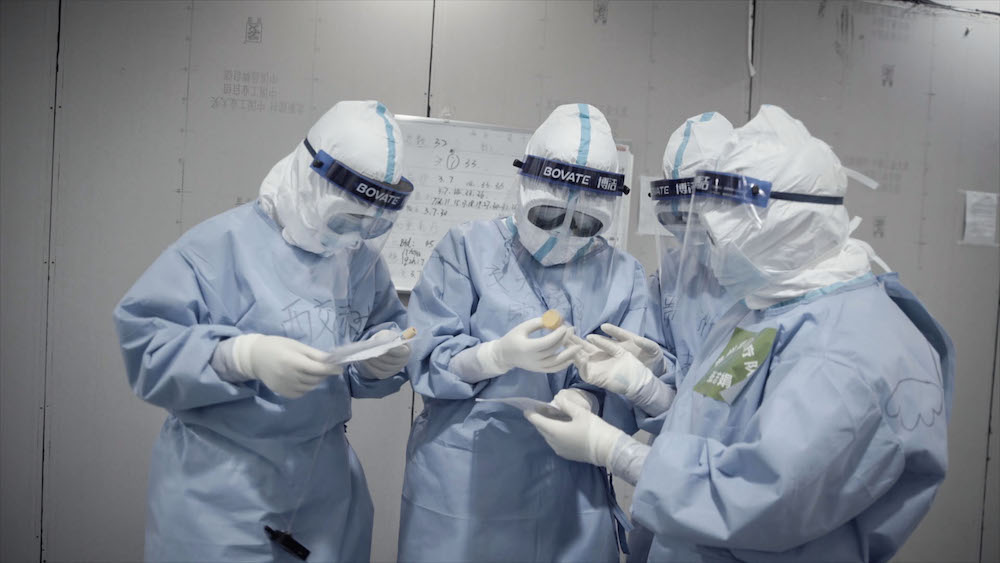Art World
Ai Weiwei’s Latest Film Is a Chilling Look at Life Under Lockdown in Wuhan Through the Lens of Chinese State Control
Ai Weiwei's new film 'Coronation' was shot by the residents of Wuhan themselves.

Ai Weiwei's new film 'Coronation' was shot by the residents of Wuhan themselves.

Streets are empty and deserted. Cleaners in hazmat suits hose down surfaces—and each other—with sanitizer. Alarms sound as medical workers shuttle tightly wrapped bodies on gurneys and stretchers.
These are just a few of the apocalyptic images that greet viewers of Chinese-born artist Ai Weiwei’s new documentary film Coronation, a look at life under lockdown in Wuhan, China. It’s being released today on Vimeo on Demand globally and on Demand Alamo Drafthouse in the US.
The film looks at the city through the lens of Chinese state control over the course of the coronavirus lockdown. Ai, who is an outspoken critic of the Chinese government and served 81 days in prison there in 2011, remotely directed and produced the film from his home in Berlin. The film was shot and submitted by ordinary citizens living in Wuhan.
“The film records the state’s brutally efficient, militarized response to control the virus. Sprawling emergency field hospitals were erected in a matter of days,” according to the film’s description on Vimeo. A total of 40,000 medical workers were bused in from all over China, and the city’s residents were sealed inside their homes.
Ai says he sees similarities between the current health crisis and the SARS outbreak 17 years ago. “The government covered up the situation, the virus began to spread, and then a lockdown was implemented,” he told Artnet News.
“It is very possible that the Chinese authorities, having experience with SARS, simply wished it would go away on its own,” he added. “They hesitated to openly and clearly provide information about the disease. Early on, they said it was not transmittable from human-to-human in an attempt to prevent people from panicking. They also froze disclosure of the accurate number of infected and dead.”
Ai said he began filming in January. It took two months to gather the footage and photos and another two months to complete the editing. “It is probably the fastest that a documentary of this scale has been made,”
The main challenge, he said, was the fact that shooting took place in an area where outside information had been blocked and thus any filming could have been seen as a potential threat to national security. “We managed to get the best shots of the real situation, including the scale of the city and the lockdown, scenes in the ICUs of different hospitals, shots of the surveillance room in the hospital, and how goods were delivered during lockdown conditions.”
Coronation takes viewers inside Wuhan’s temporary hospitals and ICU wards to show the process of diagnosis and treatment. It includes interviews with patients and their families, many of whom express frustration and anger over the government’s heavy-handed restrictions.

A healthcare worker is disinfected. ©Ai Weiwei
Viewers see impact of the lockdown on Wuhan residents’ private lives, including a couple’s attempt to return to their home, a courier who delivers essentials to residents barred from leaving their community, and an emergency construction worker forced to live out of his car.
“China has assumed the status of superpower on the global stage, yet it remains poorly understood by other nations,” the Coronation website says. Through the lens of the pandemic, the film shows the Chinese crisis management and social control machine—a mixture of “surveillance, ideological brainwashing, and brute determination to control every aspect of society.”

Nurses in the ICU ward of a hospital in Wuhan. ©Ai Weiwei
“Ultimately,” Ai says, “the result is a society lacking trust, transparency, and respect for humanity,” according to the artist.”
The artist’s previous film, Human Flow (2017), documented the global refugee crisis in 20 countries. After recovering his passport from Chinese authorities, Ai traveled to the Greek island of Lesbos, where he first came face to face with the humanitarian crisis on its shores and was moved to document it.